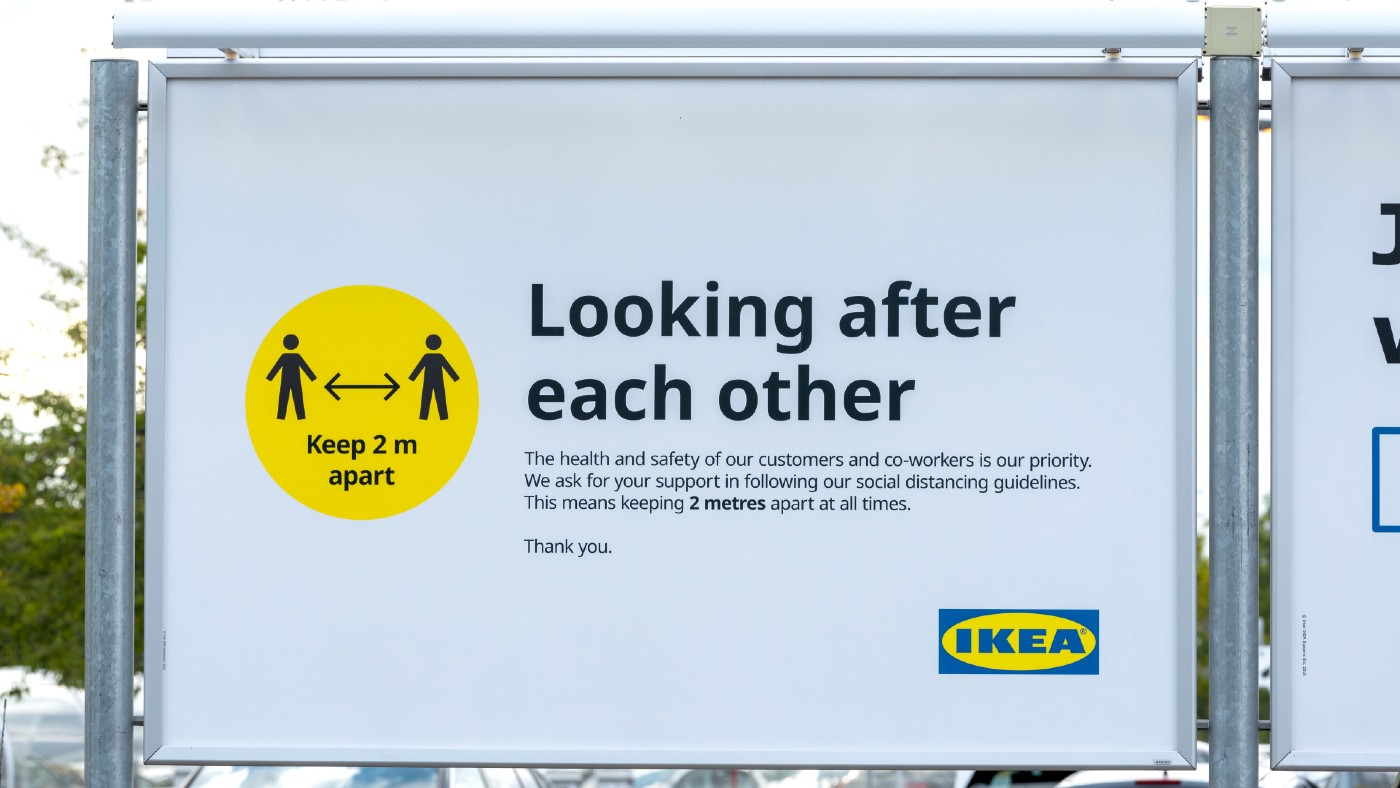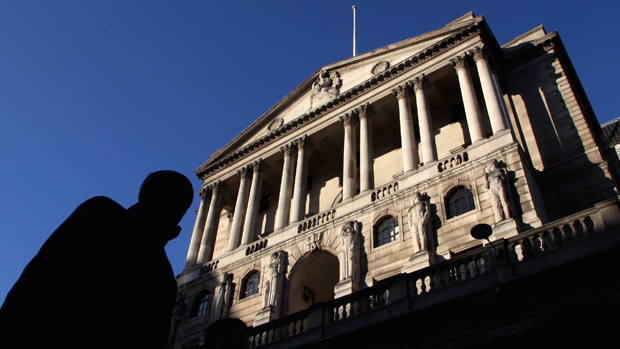Explained: what is universal basic income?
Care leavers in Wales could receive payments in pilot scheme
A free daily email with the biggest news stories of the day – and the best features from TheWeek.com
You are now subscribed
Your newsletter sign-up was successful
As hundreds of thousands of people were thrown out of work by the coronavirus pandemic, the idea of a universal basic income (UBI) has had a resurgence in interest across the globe.
The UK has seen a surge in support for the policy, with 84% of the public, as well as more than 100 MPs and peers in parliament, supporting the idea of a “recovery basic income”, The Guardian columnist Zoe Williams says.
That interest has not been lost on political leaders in Wales, which is set to launch a trial UBI scheme after First Minister Mark Drakeford pledged to bring the idea to the Welsh parliament (the Senedd) during his term.
The Week
Escape your echo chamber. Get the facts behind the news, plus analysis from multiple perspectives.

Sign up for The Week's Free Newsletters
From our morning news briefing to a weekly Good News Newsletter, get the best of The Week delivered directly to your inbox.
From our morning news briefing to a weekly Good News Newsletter, get the best of The Week delivered directly to your inbox.
Drakeford said the pilot would “see whether the promises that basic income holds out are genuinely delivered” in people’s lives, adding: “It’ll have to be carefully crafted to make sure that it is affordable and that it does it within the powers available to the Senedd.”
What is universal basic income?
Sometimes referred to as “guaranteed” minimum income, or even negative interest rates, UBI awards everyone a fixed monthly payment, regardless of whether they are in work. This amount can be cut at a set rate if recipients meet and exceed a set limit. It is similar to working tax credits in the UK, but avoids the costly administrative burden and complexity of applications and potential tax return-based clawbacks.
What could the trial look like in Wales?
A free daily email with the biggest news stories of the day – and the best features from TheWeek.com
According to WalesOnline, the key details of the trial are still being finalised. However, it is understood that the research project will focus on people leaving care. It is also thought that the trial will not cover an entire geographical region.
“We have followed the progress of UBI pilot projects around the world with interest and believe there is an opportunity to test the concept in Wales,” said a Welsh Government spokesperson.
“There is more work to be done in this area but we are interested in developing a small pilot, potentially involving people leaving care.”
What are arguments for and against UBI?
The Conservatives have responded to the Wales trial by arguing that the country should not become “a petri dish for failed left-wing policies”, the BBC reports. Chancellor Rishi Sunak also repeatedly rejected the idea during the Covid-19 pandemic, arguing it was not the “right response” to the issues posed by the pandemic.
Critics often label the initiative a pipe dream, warning of sky-high costs and people quitting their jobs in droves to the detriment of the economy.
MoneyWeek editor-in-chief Merryn Somerset Webb argues in the Financial Times that pandemic support schemes have taught us that “if you give people the kind of financial support that allows them to withdraw their labour, a good number of them probably will”.
In non-crisis scenarios, those in favour of the scheme include many progressive and left-leaning economists, who argue it would help fight poverty and reduce inequality in a world where jobs are increasingly being robotised and where up to half of all work currently done, such as housework or care work, is unpaid.
Supporters also say it would reduce the cost of administering complex welfare programmes with opaque eligibility criteria. The Telegraph suggests that supporters of UBI believe it is the “only way to guarantee a basic standard of living for all citizens and protect them from sudden economic shocks”.
Some small trials have already been conducted to assess the impact of UBI-type schemes. One pilot conducted in Finland from 2017 to 2018, found the 2,000 participants were in better health and more likely to be in work at the trial’s conclusion.
What about during the coronavirus outbreak?
Before the furlough scheme was introduced, Daniel Susskind, an economics fellow at the University of Oxford, told The Telegraph that a temporary UBI scheme could “support businesses, such as pubs and restaurants, that would not benefit from a top-down financial stability package from the government or Bank of England”.
He estimated that handing out £1,000 to every citizen each month would cost the government about £66bn a month, but notes that the implementation would be cheap and quick as there would be none of the bureaucracy that comes with means testing.
In March last year, Boris Johnson told the Commons that UBI was “one of the ideas that will certainly be considered” as the government searched for a solution to the national lockdown before the furlough scheme was introduced four days later.
-
 6 exquisite homes with vast acreage
6 exquisite homes with vast acreageFeature Featuring an off-the-grid contemporary home in New Mexico and lakefront farmhouse in Massachusetts
-
 Film reviews: ‘Wuthering Heights,’ ‘Good Luck, Have Fun, Don’t Die,’ and ‘Sirat’
Film reviews: ‘Wuthering Heights,’ ‘Good Luck, Have Fun, Don’t Die,’ and ‘Sirat’Feature An inconvenient love torments a would-be couple, a gonzo time traveler seeks to save humanity from AI, and a father’s desperate search goes deeply sideways
-
 Political cartoons for February 16
Political cartoons for February 16Cartoons Monday’s political cartoons include President's Day, a valentine from the Epstein files, and more
-
 The cost-of-living support available from government
The cost-of-living support available from governmentfeature Downing Street says no further measures will be rolled out before new PM is in place
-
 Why the government opposes a windfall tax on oil and gas profits
Why the government opposes a windfall tax on oil and gas profitsfeature BP profit surge triggers renewed calls for a levy to help struggling households
-
 Will Britain fall into a recession this summer?
Will Britain fall into a recession this summer?Today's Big Question Spiralling cost of living comes after the Russian invasion of Ukraine
-
 Does Saudi Arabia hold the key to lower energy prices?
Does Saudi Arabia hold the key to lower energy prices?Today's Big Question Boris Johnson due to visit Riyadh for talks as the UK seeks to reduce Russian energy imports
-
 U.K. freezes assets of 7 Russian oligarchs, including Roman Abramovich and Oleg Deripaska
U.K. freezes assets of 7 Russian oligarchs, including Roman Abramovich and Oleg DeripaskaSpeed Read
-
 What are the rules on cutting sick pay for unvaccinated staff?
What are the rules on cutting sick pay for unvaccinated staff?feature Ikea joins growing list of firms axing sick pay entitlement for employees who haven’t had Covid jabs
-
 The Bank of England official warning women against home working
The Bank of England official warning women against home workingIn the Spotlight Not returning to the office will result in ‘two track’ career development, senior policymaker claims
-
 Valneva vaccine: why UK ditched jab with ‘stronger immune response’ than AstraZeneca
Valneva vaccine: why UK ditched jab with ‘stronger immune response’ than AstraZenecaIn Depth Downing Street accused French manufacturer of breaching contract